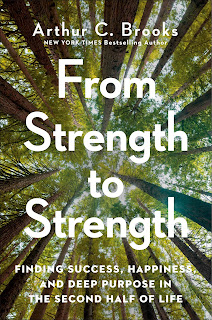The Art of Less: How Minimalism Can Unclutter Your Life and Mind
Hey there! Have you ever felt like you're running on a never-ending treadmill, trying to keep up with the Joneses? Chasing the latest gadgets, fashion trends, and even the dream of a Pinterest-worthy home? Well, what if I told you that the secret to a fulfilling life might just be the opposite—less is more. That's right, we're diving into the world of minimalism, a lifestyle where less clutter and fewer obligations can lead to more freedom, happiness, and peace of mind.
The concept of minimalism emerges as a beacon of simplicity and clarity. Minimalism is not just about decluttering your physical space; it's a lifestyle philosophy that encourages intentional living by focusing on what truly matters. By paring down possessions and commitments, minimalism allows individuals to reclaim their time, energy, and attention for the things that bring genuine fulfillment and joy.
At its core, minimalism challenges the notion that more is always better. In a culture that often equates success and happiness with material wealth and possessions, minimalism offers a refreshing perspective. It invites us to question our consumer habits and reassess our priorities. Rather than accumulating endless belongings, minimalists deliberately choose to own only what adds value to their lives.
The minimalist journey begins with decluttering – a process of simplifying one's physical environment by eliminating excess belongings. This can be a daunting task, especially in a society that encourages accumulation. However, as possessions are pared down to the essentials, individuals often find a sense of liberation and lightness. With fewer material distractions, they can better appreciate the beauty and functionality of the items they choose to keep.
But minimalism extends beyond decluttering physical spaces; it also encompasses simplifying one's schedule and commitments. In a world where busyness is often worn as a badge of honor, minimalists recognize the importance of saying no to nonessential activities and obligations. By focusing on a few meaningful pursuits, they can devote more time and attention to what truly matters – whether it's nurturing relationships, pursuing passions, or simply enjoying moments of solitude and reflection.
One of the key benefits of minimalism is the freedom it brings. By letting go of unnecessary possessions and commitments, individuals can experience a newfound sense of freedom and autonomy. They are no longer weighed down by the burden of excess, allowing them to live more intentionally and authentically. This freedom extends beyond material possessions; it permeates every aspect of life, fostering a deeper sense of contentment and fulfillment.
Minimalism also fosters mindfulness and gratitude. By living with less, individuals learn to appreciate the simple pleasures of life – a beautiful sunset, a meaningful conversation, or a quiet moment of reflection. Rather than constantly striving for more, they find fulfillment in the present moment, cultivating a sense of gratitude for what they have.
Moreover, minimalism has environmental and sustainability benefits. By consuming less and prioritizing quality over quantity, minimalists reduce their ecological footprint and contribute to a more sustainable future. They embrace conscious consumption, choosing products and practices that align with their values of simplicity and environmental stewardship.
Minimalism is not about deprivation or austerity; it's about abundance – abundance of time, space, and meaningful experiences. By simplifying our lives and focusing on what truly matters, we can cultivate a deeper sense of happiness and fulfillment. Minimalism invites us to question the status quo and reimagine a life driven not by material possessions, but by purpose and passion. So let's embrace the beauty of less and discover the richness of a minimalist lifestyle.
Brought to you by The Simplicity Lifestyle




Comments
Post a Comment